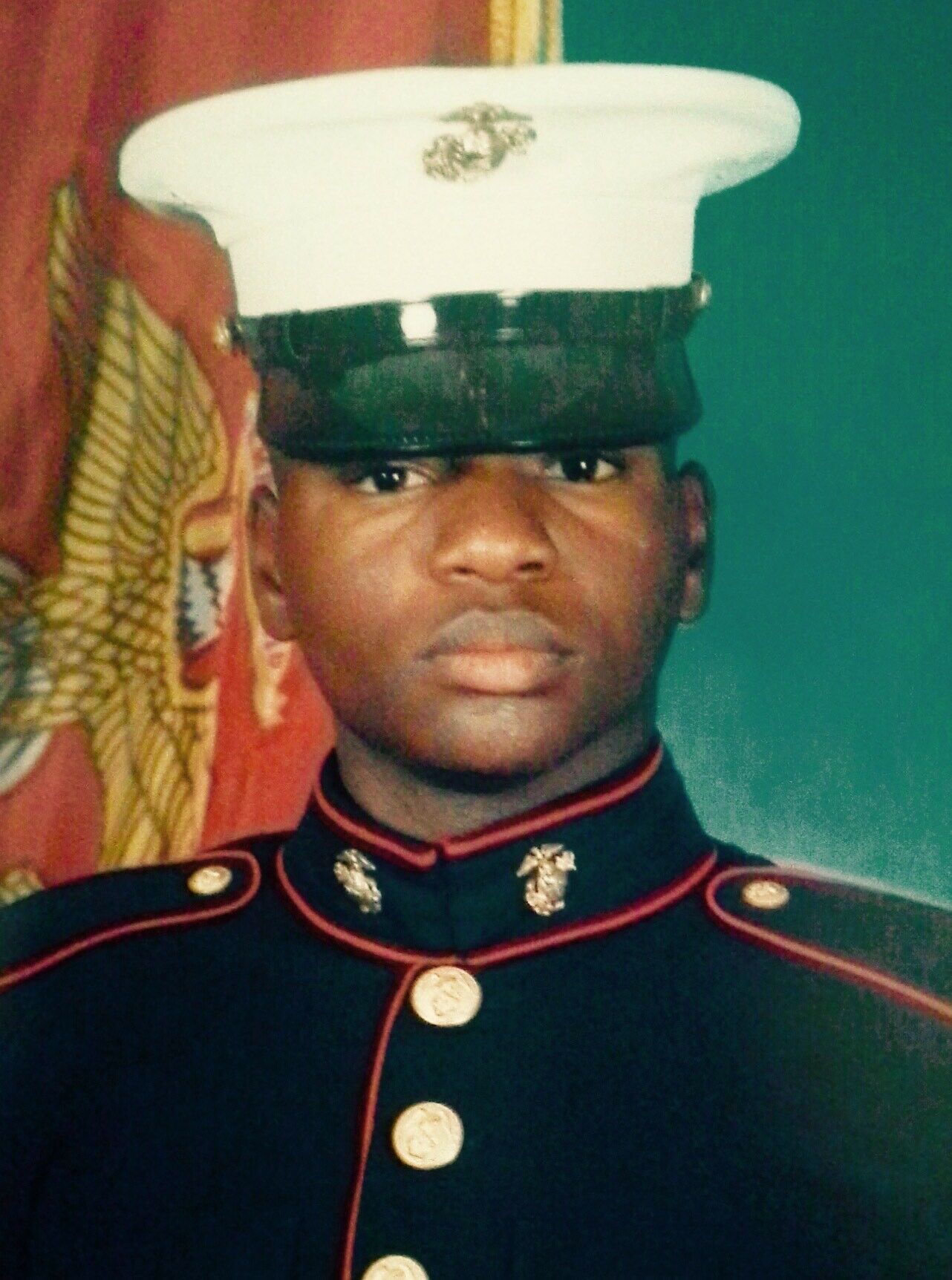Gregory Middleton
The physical toll of 9 years of service isn’t obvious with Gregory Middleton. Most people don’t know about the bullet fragments still lodged in his skull from a sniper bullet, or the daily leg and back pain that plagues him from what he calls the most sobering moment of his life.
Long before that, though, Gregory sat behind a desk as an air-ground taskforce planner.
“I wore a suit and had a beard for the first 3 years I was in the Marines,” Gregory said.
After three tours, Gregory was on his fourth and final deployment to Iraq in 2006. Feeling as though he hadn’t truly done the work of a Marine, he pleaded with his Regimental Commander to let him see combat. Gregory was granted his request and in June he received orders to take a squad for a building sweep in a city called Habbiniyah. While on the second floor, the squad was ambushed by enemy fire. Trapped, Gregory radioed for help and a convoy was sent to rescue the eleven Marines, Gregory, and his corpsman. The plan was to have the truck pull up alongside the building and have the squad jump out of the second-story window onto its bed.
With no rearview to the back of the truck, the convoy driver had to rely on the thuds of each soldier as they jumped onto the bed.

“The guys on the truck, they’re counting, 10, 11, 12 … and they pull away,” Gregory said. “And I’m still in the building.”
The driver wasn’t aware there was one more Marine than usual. The miscommunication left Gregory stranded in the building asinsurgents made their way up the stairs.
“It was a real sobering moment for me to think that that was the end,” Gregory remembered.
Running off of instinct and training, Gregory was left with no other option than to jump out of the second-story window onto the ground below.
“As I dove out of the window, I took a round in my rearend, and something got caught on the window, flipping me upright and I plummeted straight down,” Gregory said.
The next thing he remembers is waking up in a hospital in Germany.
The convoy had been able to rescue Gregory, but he had been gravely injured. The landing broke both of his feet and back, shattered both his knees, fractured his femur, and tore his rotator cuff. His recovery would take months. To his doctors’ surprise, however, he was walking again in six months.
Gregory eventually returned to active duty and was deployed for his final tour, this time to Afghanistan. When he returned, he was med-boarded and eventually retired from the Marines in 2009 with the rank of staff sergeant.
Gregory describes his transition back into civilian life as relatively easy. In 2019, he had a job with the city’s public transportation system and was starting his own nonprofit that would serve as a diversion program for juvenile criminal offenders.
Then, seemingly all at once, his nonprofit folded, he lost his job, and his mental health began to suffer.
“My military trauma kind of surfaced and it became this perfect storm of distress,” Gregory said. “I ended up in the psychiatric unit at the VA Hospital.”
While he received treatment, the father of four fell behind on his bills. When he was finally discharged from the hospital, he returned home to discover his utilities had been shut off. On the brink of foreclosure, Gregory decided to reach out for help.He was eventually referred to USA Cares.
In a matter of days, USA Cares approved his case and paid off all his delinquent bills.
“They really bailed me out in a time where I just didn’t know what else I was going to be able to do,” Gregory said.
Now a senior operations manager of transportation for a healthcare company in Chicago, Illinois, Gregory is back on his feet and determined to give back to the organization that helped him
“I’m very proud to speak on behalf of USA Cares and say, hey, I was a person of need,” Gregory said. “I was helped. I rebounded from that situation and now I’m giving back.”
It’s been thirteen years since Gregory left the Marines, but he said he still feels compelled to answer the call to service.
“When you’re aided, it’s incumbent upon you touplift and help the next person,” Gregory said. “If putting my face on that effort helps, then I’ll do it. I’ll do it 100 times over.”
